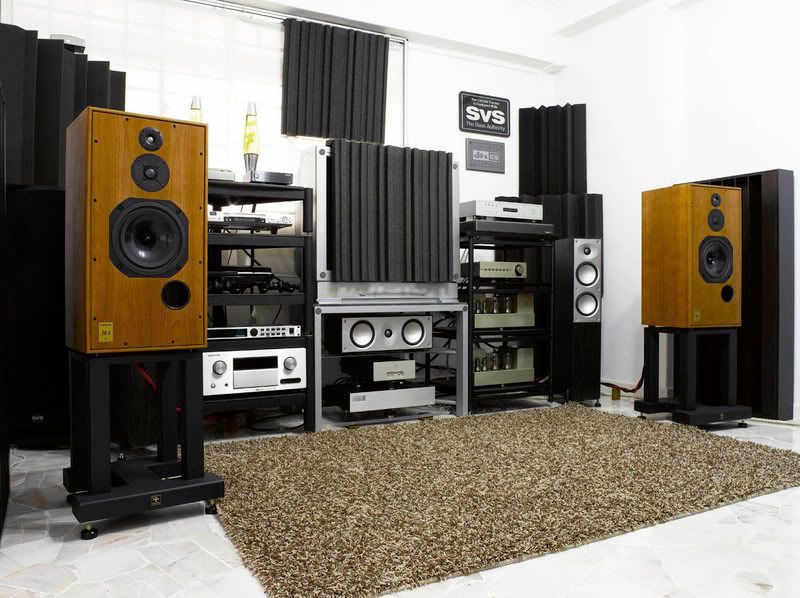In my last post I talked about how the quality and natural dynamics of music is being destroyed through digital software technology that allows unnatural processing of audio.
But there is a much greater threat to the quality of audio that has been the subject of my thoughts for some time now: The way we listen to sound.
Back in the 1970’s the quality of sound recording technology, production techniques and playback systems reached a pinnacle with some of the most incredible music and sound humanity had ever known, and this became further fine tuned in the 1980’s. Brilliant, rich full spectrum sound that went beyond the range of human hearing, but influenced the richness of the sound through frequency harmonics that enhanced what we could hear with our ears.
Two things initiated the downward spiral that has led us to where we are today: The Walkman and the CD.
Very briefly, the walkman influenced music lovers to listen to music on crappy little earphones, and the CD chopped off audio at 20kHz without researching the influence of harmonics above that hearing range on sound we do hear. This is why vinyl records really are better sounding than CD’s in many ways.
From there, the convenience of sound gave way to clarity, and quality until we come to the present day world, of massively widespread use by the majority of music and audio listeners of terrible sounding MP3’s played on the worst possible sound producing devices humanity has ever experienced: earbud iPod headphones, computer laptop speakers, and cel phones! And this doesn’t even begin to cover the music and production tools and techniques prevalent with the trend of do it yourself computer production.
To a producer like myself who has spent over a decade mastering the subtle art of trying to perfect music and sound, this trend is devastating to say the least. And if you ever compared how music sounds on a really nice hi fi stereo system (you know like the ones they used in the 70’s) with a computer laptop speaker, it would make you nauseous. You lose something like 80% of the sound! But that introduces another problem- people don’t really know what sounds good and what doesn’t, maybe because they have become so used to listening to terribly reproduced sound, in my humble opinion and experience.
(Just as a benchmark, and cost is by no means an accurate measure, if your speakers cost less than $500, they are probably cheap garbage that sounds terrible!)
This has brought up all kinds of questions for me with regard to what I do as a profession… Why create great sounding 24 bit 96kHz audio if it is going to end up at 80% of what you created? For the 20% of people that like good sound?
My only answer is to become more involved in the film industry side of audio production as a sound designer, since at least sound is formatted and reproduced in higher fidelity than with music. So that is what I have gradually been doing. A film I worked on last year is hitting the theatres in September here…
I truly feel for the future of music in an environment where it is so under appreciated. It makes me wonder what the future holds for someone in a profession like myself and wether or not there will even be the need for professional producers and engineers if no one can really appreciate or notice their efforts.
For those of you reading this who don’t really know what I’m talking about, you don’t know what your missing!
